Feb 01
What is National Freedom Day?
February 1, 1865 — Today is National Freedom Day, which celebrates the signing of a resolution that proposed the 13th Amendment of the Constitution, which outlaws slavery. It declares: "Neither slavery nor involuntary servitude, except as a punishment for crime whereof the...
Feb 02
Who was Arthur St. Clair?
February 2, 1787 — Arthur St. Clair was elected the 9th president of the Continental Congress today. One of his first jobs was to deal with Shay’s Rebellion, because American farmers were up in arms against state and local enforcement of tax collections and...
Feb 03
Where was the world’s first commercial cheese factory established?
February 3, 1815 — The world's first commercial cheese factory was established in Switzerland today in 1815. However, it was in the United States where large-scale production found real success. Credit goes to Jesse Williams, who today is known as the...
Feb 04
What were the Apache Wars, and how long did they last?
February 4, 1861 — Apache Chief Cochise was arrested in Arizona today by the U.S. Army for raiding a ranch. He then escaped and declared war, beginning the period known as the Apache Wars, which lasted 25 years. Its origins started...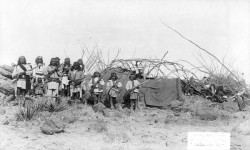
Feb 05
Who manufactured the first adding machine?
February 5, 1887 — Dorr Eugene Felt (1862–1930) of Beloit, Wisconsin began manufacturing his comptometer today, taking the adding machine to new heights. It was an invention 220 years in the making, for the original creators of adding machines were Blaise Pascal and Wilhelm Schickard, who...
Feb 06
What was the Treaty of Alliance?
February 6, 1778 — The Treaty of Alliance with France — aka: the Franco-American Treaty — was a defensive alliance between France and the United States of America. Formed in the midst of the American Revolutionary War, it promised America of French military support...
Feb 07
Who performed the first ballet at the Bowery Theater today in 1827?
February 7, 1827 — Madame Francisquy Hutin and her troupe performed the ballet Deserter for the first time at the Bowery Theater in New York City. The playhouse, located on the Bowery in the Lower East Side of Manhattan, was founded by wealthy families...
Feb 08
What was the first opera performed in the Colonies?
February 8, 1735 — The first opera performed in the Colonies opened today in Charleston, SC. A ballad opera entitled, Flora: Or Hob in the Well, debuted at the New World Theatre. The 18th-century English-language play is punctuated by popular songs of the time with...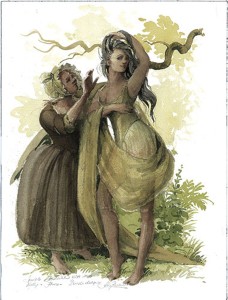
Feb 09
Who signed the resolution to create the US National Weather Service?
February 9, 1870 — The US Army established the US National Weather Service today. A joint resolution of Congress was signed by President Ulysses S. Grant with the mission to "provide for taking meteorological observations at the military stations in the interior of the continent and...
Feb 10
Who created the first diving suit?
February 10, 1774 — Today, Andrew Becker created a leather-covered diving suit with a helmet featuring a window. Becker used a system of tubes for inhaling and exhaling, and demonstrated his suit in the River Thames, London, during which he remained submerged for...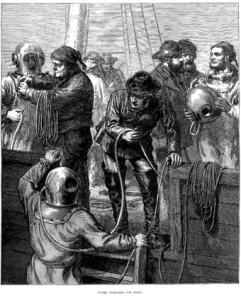
Feb 11
What is the power of anthracite?
February 11, 1808 — Anthracite coal was first burned as an experiment today in Wilkes-Barre, PA, by Judge Jesse Fell. He placed it on an open grate in a fireplace as an alternative to wood. It lit, warmed the room, and thus became a viable heating alternative. A hard, compact...
Feb 12
Who founded the colony of Georgia?
February 12, 1733 — James Edward Oglethorpe (December 1696-June 1785) founded the colony of Georgia today. The British general, member of Parliament, and philanthropist, was also a social reformer who hoped to resettle Britain's poor in the New World — especially those in debtors'...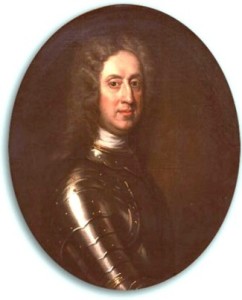
Feb 12
Happy Birthday Abraham Lincoln!
February 12, 1809 — Abraham Lincoln is born today in 1809. An American politician and lawyer, he served as the 16th President of the United States from March 1861 until his assassination in April 1865. Lincoln led the United States through its...
Feb 13
Which city saw the first appearance of cholera today in 1832?
February 13, 1832 — London saw its first appearance of Cholera Morbus today. The infection of the small intestine by some strains of the bacterium Vibrio cholerae cause watery diarrhea, vomiting and muscle cramps, as well as severe dehydration and electrolyte imbalance. Spread mostly by water and food that has been contaminated with human feces containing the bacteria, insufficiently cooked seafood can...
Feb 14
Who discovered Lake Tahoe?
February 14, 1844 — Lt. John C. Frémont is the first European to discover Lake Tahoe in the US today. But John Calhoun Johnson, founder of "Johnson's Cutoff" (now U.S. Route 50), was likely the first white man to see Meeks Bay...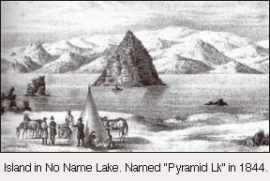
Feb 14
Happy Valentine’s Day: A short history
Also called Saint Valentine's Day or the Feast of Saint Valentine, today we celebrate an annual holiday that originated as a Western Christian liturgical feast day. It honored one or more early saints named Valentinus, and is recognized as a significant...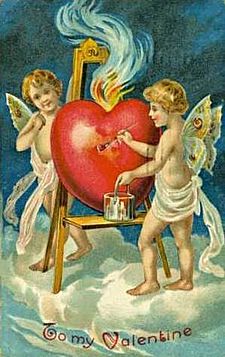
Feb 15
What was the Harmony Society?
February 15, 1805 — About 400 German followers formally organized the Harmony Society in Butler County, PA today, placing all their goods in common. Its leader was Johann Georg Rapp (November 1, 1757 – August 7, 1847), who wrote, "Thoughts on the Destiny of Man," in 1824, which...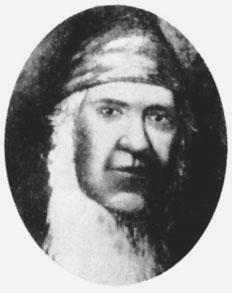
Feb 16
Who wrote “Elegy Written in a Country Church Yard”?
February 16, 1751 — "Elegy Written in a Country Church Yard" was published today by Thomas Gray (December 26, 1716 – July 30, 1771) — an English poet, letter-writer, classical scholar and professor at Cambridge University. Completed in 1750, the poem’s origins are unknown, but...
Feb 17
Which US city is the first to be lit by gas street lamps?
February 17, 1817 — Baltimore is the first US city to be lit by gas street lamps today. At the corner of North Holliday Street and East Baltimore Street, local businessmen and socialites gathered outside the museum of artist Rembrandt Peale for a demonstration under...
Feb 18
What was California’s first incorporated city?
February 18, 1850 — The California Legislature created nine Bay Area counties today. Within weeks, Sacramento became California's first incorporated city on February 27, 1850 — followed by San Jose, San Diego and Benicia on March 27, 1850. (Jurupa Valley became the state's most recent and...
Feb 19
Where did the first coal-burning locomotive make its trial run?
February 19, 1831 — The first US coal-burning locomotive made its trial run today in Philadelphia. Owned by the Baldwin Locomotive Works, the company was the largest producer of steam locomotives — a surprise to its founder, Matthias W. Baldwin (December 1795 -September 1866), a jeweller and whitesmith. In 1825, he...
Feb 20
Celebrate President’s Day with a history lesson: What is the story behind dueling in America?
February 20, 1839 — Today, Congress passed legislation barring the practice of dueling in the District of Columbia. Passage of the law was inspired by a 1838 duel in which Kentucky Rep. William Graves killed Maine Rep. Jonathan Cilley at the Bladensburg...
Feb 21
Who was the first female telegraph operator?
February 21, 1846 — Sarah Bagley (April 19, 1805 – June 23, 1883) today became America's first woman telegraph operator. An advocate for women's rights, and one of the most important labor leaders in New England during the 1840s, she campaigned to...
Feb 22
Which was the first American ship to sail from the US to China in 1784?
February 22, 1784 — The first US ship to conduct trade with China, "Empress of China," sailed from New York today. Also known as Chinese Queen, this three-masted, square-rigged sailing ship of 360 tons was initially built in 1783 for service...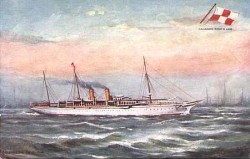
Feb 23
Which was the first US college to train pharmacists?
February 23, 1821 — The College of Apothecaries is organized today when 68 pharmacists met in Carpenters' Hall to establish scientific standards and train apprentices. Less than a year later, they organized and incorporated the Philadelphia College of Pharmacy (PCP), the first college...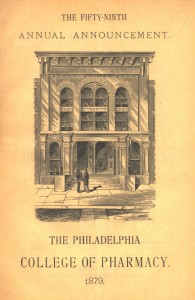
Feb 24
Who was Jonathan Cilley?
February 24, 1838 — Today, Jonathan Cilley of Maine (pictured right) was killed by Representative William Graves of Kentucky in a duel on the outskirts of D.C., in Prince George’s County, Maryland. Here's the back story: Graves approached Cilley with a letter...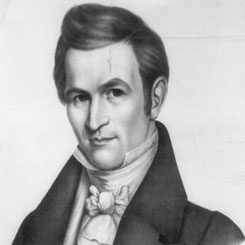
Feb 25
Why did Congress pass the federal quarantine legislation?
February 25, 1799 — Congress passed the first federal quarantine legislation today. Under Section 361 of the Public Health Service Act, it regulated the entry and spread of communicable diseases into and among the US. It also shifted the power to protect against external...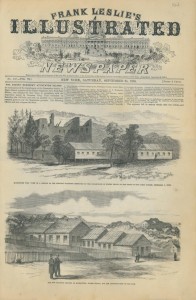
Feb 26
What is the theory behind the “Communist Manifesto,” which was published today in 1848?
February 26, 1848 — Today, Karl Marx and Friedrich Engels published their "Communist Manifesto" — a political pamphlet recognised as one of the world's most influential political manuscripts. The German philosophers took an analytical approach to the class struggle (historical and then-present) by summarizing the problems of capitalism and...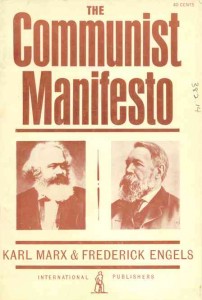
Feb 27
Who created the first US kindergarten class?
February 27, 1818 — Pioneering educator, Emma Marwedel (February 27, 1818–November 17, 1893) is born today. The founder of the kindergarten movement in the US became a feminist, and an early proponent of prenatal care. Born in Germany to Captain Heinrich Ludwig Marwedel...
Feb 28
What was the impact of the “Peacemaker” in 1844?
February 28, 1844 — The "Peacemaker," a 12-inch gun aboard USS Princeton, explodes during a display of the ship today. It killed six people, including Secretary of State Abel P. Upshur, Secretary of the Navy Thomas Gilmer, US Senator David Gardiner, and other high-ranking...




